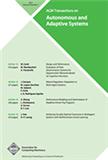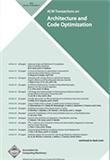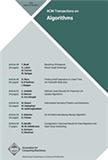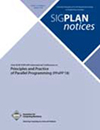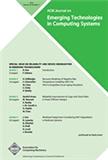Cognitive Systems Research
SCIE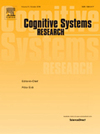
- 雜志名稱:認知系統研究
- 簡稱:COGN SYST RES
- 期刊ISSN:1389-0417
- 大類研究方向:工程技術
- 影響因子:1.384
- 數據庫類型:SCIE
- 是否OA:No
- 出版地:NETHERLANDS
- 年文章數:60
- 小類研究方向:工程技術-計算機:人工智能
- 審稿速度:>12周,或約稿
- 平均錄用比例:容易
官方網站:http://www.journals.elsevier.com/cognitive-systems-research/
投稿網址:https://www.evise.com/evise/faces/pages/login/login.jspx?resourceUrl=%2Ffaces%2Fpages%2Fnavigation%2FNavController.jspx%3FJRNL_ACR%3DCOGSYS%26
Cognitive Systems Research
英文簡介Cognitive Systems Research is dedicated to the study of human-level intelligence. As such, it welcomes papers which advance the understanding, design and applications of cognitive and intelligent systems, both natural and artificial.The journal brings together a broad community studying cognitive architectures in vivo and in silico. It aims to integrate ideas, concepts, constructs, theories, models and techniques from across different disciplines and different perspectives on cognitive architectures - both biologically-inspired and non-biologically-inspired - and the development and application of cognitive systems. Cognitive Systems Research plays a special role in fostering and promoting the 'BICA Challenge' to create a real-life computational equivalent of the human mind by devoting two special issues to BICA related topics each year.Cognitive Systems Research welcomes mature and cutting-edge research in the form of original manuscripts, short communications and survey articles within the following scope: Cognitive science: including autonomous cognition and metacognition, imagery, sensemaking, meta-learning, self-regulated learning, life-long learning and cognitive growth, "critical mass" of a learner, natural and artificial creativity, affects, emotions and feelings, emotional competence, social cognition, the self, human-like episodic memory, language perception, processing, production, acquisition and development. Experimental psychology: Empirical studies on the topics listed above will be considered if they are supplemented by computational modelling studies. Computer science and artificial intelligence: including cognitive architectures, virtual and physical cognitive robotics, synthetic characters, bootstrapped and human-like learning, human-computer interface, vision and computational linguistics. Neuroscience and neuromorphic engineering: including system-level computational neuroscience, cognitive neuroscience, models of the neural substrates of semantic and episodic memory and awareness, agency, emotions and feelings, theory of mind and social cognition, language, imagery, voluntary control, goal and value systems, spatial cognition and the implementation of new computer substrates such as neuromorphic engineering.
Cognitive Systems Research
中文簡介認知系統研究致力于人類智力水平的研究。因此,它歡迎促進自然和人工認知和智能系統的理解、設計和應用的論文。該雜志匯集了一個廣泛的社區研究認知結構在體內和硅。它旨在從不同學科和認知架構的不同視角(包括生物啟發和非生物啟發),以及認知系統的開發和應用,整合思想、概念、結構、理論、模型和技術。認知系統研究在培育和促進“BICA挑戰”方面發揮著特殊的作用。BICA的挑戰是通過每年為BICA相關主題提供兩個專題,創建一個現實生活中與人類思維等價的計算模型。認知系統研究歡迎在以下范圍內以原稿、短交流、調查文章等形式開展成熟前沿的研究:認知科學:包括自主認知與元認知、意象、感覺制造、元學習、自我調節學習、終身學習與認知成長、學習者的“臨界量”、自然與人工創造力、情感與情感、情感能力、社會認知、自我、類人情景記憶、語言感知、加工、生產、習得與發展。實驗心理學:如果以計算模型研究作為補充,將考慮對上述主題的實證研究。計算機科學與人工智能:包括認知架構、虛擬與物理認知機器人、合成字符、引導與類人學習、人機界面、視覺與計算語言學。神經科學和神經工程:包括系統級計算神經科學,認知神經科學,模型的語義和情景記憶的神經基質和意識,機構,情緒和情感,心理理論和社會認知、語言、圖像、自愿控制,目標和價值體系,空間認知和實施新電腦基質如神經工程。
精選同類領域期刊,熱門推薦輕松get~
-
- ACM Transactions on Autonomous and Adaptive Systems
- 期刊ISSN:1556-4665
- 大類研究方向:工程技術
- 影響因子:
- 數據庫類型:SCIE
- 咨詢投稿
-
- ACM Transactions on Architecture and Code Optimization
- 期刊ISSN:1544-3566
- 大類研究方向:工程技術
- 影響因子:1.444
- 數據庫類型:SCIE
- 咨詢投稿
-
- ACM Transactions on Applied Perception
- 期刊ISSN:1544-3558
- 大類研究方向:工程技術
- 影響因子:
- 數據庫類型:SCIE
- 咨詢投稿
-
- ACM Transactions on Algorithms
- 期刊ISSN:1549-6325
- 大類研究方向:工程技術
- 影響因子:
- 數據庫類型:SCIE
- 咨詢投稿
-
- ACM SIGPLAN NOTICES
- 期刊ISSN:0362-1340
- 大類研究方向:工程技術
- 影響因子:
- 數據庫類型:
- 咨詢投稿
-
- ACM Journal on Emerging Technologies in Computing Systems
- 期刊ISSN:1550-4832
- 大類研究方向:工程技術
- 影響因子:2.013
- 數據庫類型:SCIE
- 咨詢投稿
精選常見問題,答疑解惑輕松get~
- 三篇ssci論文怎么同時投出去
- 中文核心和sci哪個影響力更大
- 中科院一區和JCR一區期刊占比區別
- 發ssci如何快速找合適的期刊
- 資源保護方面論文投sci指導
- 外貿行業論文發ssci周期長嗎
- 國外的sci投到錄用一般多久
- ssci期刊國內認可度
- 核能應用論文翻譯英文發sci容易的方法
- 人口老齡化研究論文符合ssci領域嗎
- sci開源和不開源分別是什么意思?有什么影響?
- ssci發表是高水平學術論文嗎
- 生態修復主題英文論文會收錄哪些數據庫
- 哲學專業論文發英文期刊
- 中科院sci四個區的劃分
- ssci期刊和sci期刊的區別
- ESCI和SCIE要分清
- ssci送審論文多久出結果
- ssci論文二作有用嗎
- 水土保持類英文期刊好選嗎
- ssci期刊論文一定會檢索嗎
 投稿咨詢
投稿咨詢

